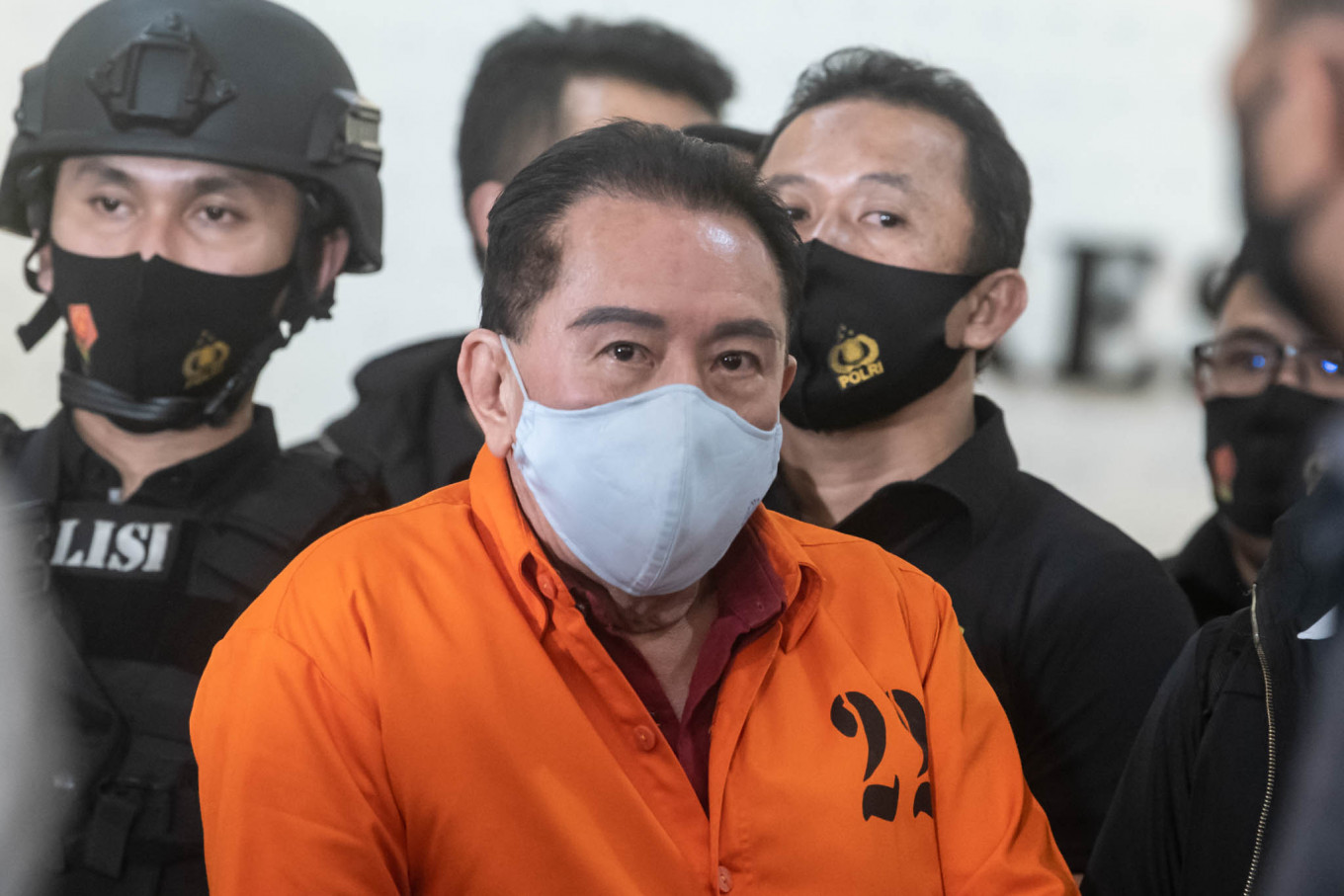Popular Reads
Top Results
Can't find what you're looking for?
View all search resultsPopular Reads
Top Results
Can't find what you're looking for?
View all search resultsMost-wanted list to go on civil registry to prevent further blunders, exploitation
"With the integrated data, the fugitives' records will spread quickly, and [this will] minimize their room for [escape]," Home Ministry population and civil registration director general Zudan Arif Fakhrulloh said in a statement on Thursday.
Change text size
Gift Premium Articles
to Anyone
T
he Home Ministry will provide information about the nation’s most-wanted criminals – a list maintained by the Attorney's General’s Office (AGO) – on the government’s civil registry to prevent further failures of enforcement and stop exploitation of the system by fugitives.
Home Ministry population and civil registration director general Zudan Arif Fakhrulloh said that the ministry had received the most-wanted list from the AGO.
The most-wanted list will be sent to population and civil registration offices throughout the country so that officers receive alerts about the legal status of fugitives if they request civil registration services.
"With the integrated data, the fugitives' records will spread quickly, and [this will] minimize their room for [escape]," Zudan said in a statement on Thursday.
Zudan said that one of the reasons behind the data integration was the recent clandestine return of graft convict and fugitive Djoko Soegiarto Tjandra to the country.
Djoko, who was convicted in the high-profile Bank Bali graft case, had been on the run for more than a decade since he fled the country in 2009. After entering the country undetected in early June, he managed to obtain a new electronic-ID and file a request for a court review of his conviction without being apprehended.
The e-ID was allegedly issued with the authorization and personal involvement of former South Grogol subdistrict head Asep Subahan in South Jakarta. The Jakarta administration has dismissed Asep for abuse of authority and violations of the e-ID card issuance procedure.
In late July, the police managed to track down and arrest Djoko in Malaysia with the help of the neighboring country's police force.
The integration of the data was also part of an agreement between the ministry and the AGO to use civil registry data in law enforcement. On Thursday, both agencies signed a letter of agreement to extend the cooperation that they had begun three years before.
Zudan said the agreement had been made to give assistance to the AGO in law enforcement through the use of population data.
According to agreement, the Population and Civil Registration Directorate General is allowed to give investigators access to 268 million personal data entries in the civil registry database, which include citizenship identification numbers (NIK), names and addresses.
The investigators are also allowed to access the Directorate General's database of 192 million citizen fingerprints and photographs for biometric recognition purposes. Zudan estimated that it would take a maximum of 20 seconds to match the fingerprint and face of an individual to an entry in the database, if the data had been recorded.
Home Minister Tito Karnavian, a former National Police chief who was assigned to his current role in late 2019, said that access to the civil registry database had been beneficial for the police.
"This is also true of the Attorney General's Office [most-wanted list]. Especially for corruption cases, in terms of interrogation, examination and other techniques, population and civil registry data is very useful in accelerating our work," said Tito.
However, Tito warned that the data should be protected to prevent abuse and breaches.
Attorney General ST Burhanuddin said in the statement that he appreciated the technological advancements and asked that prosecutors use the data selectively and only for investigation purposes.










